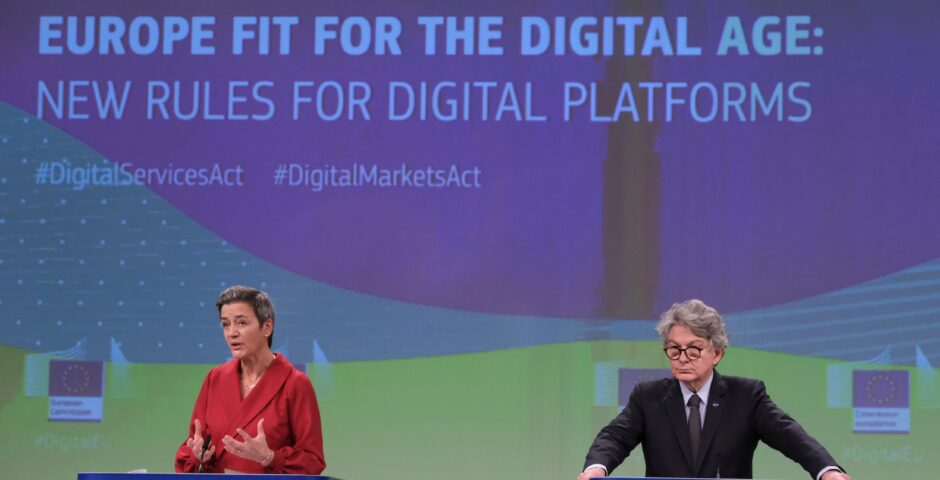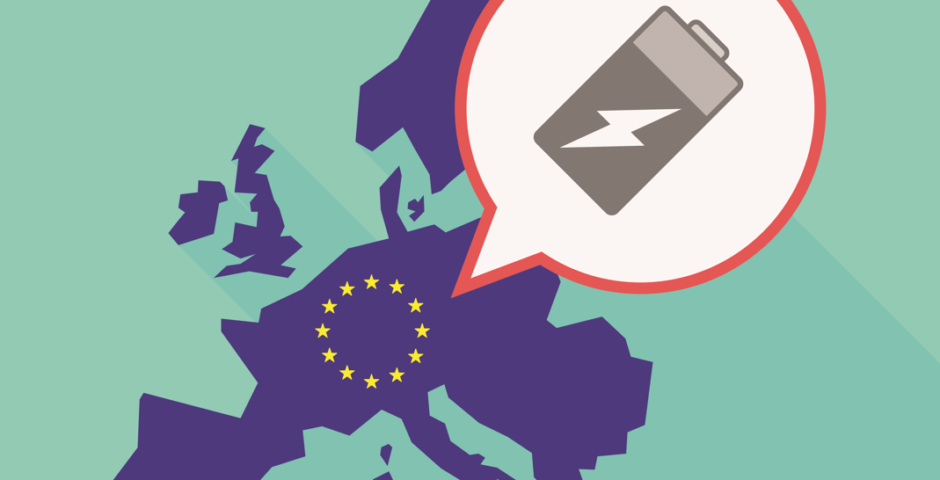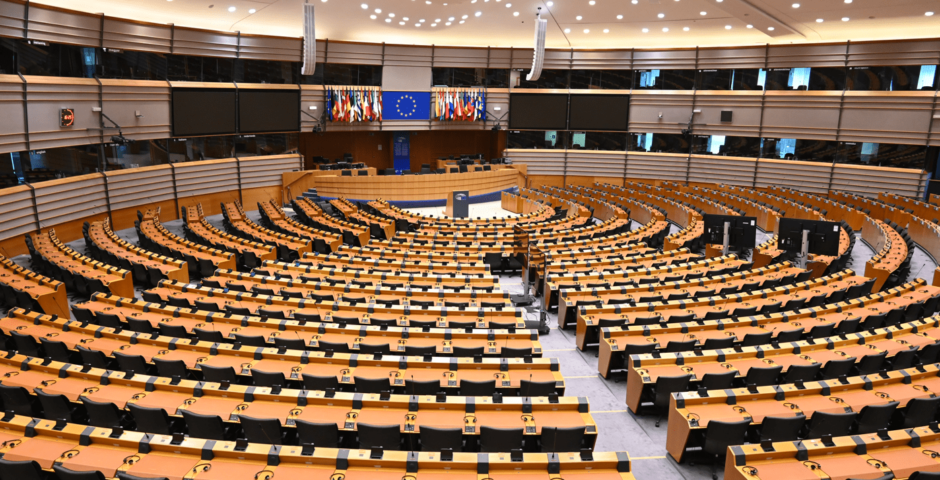Taming Tech Giants in Europe

Preserving Competition through the Digital Markets Act.
In recent years, the all-too-familiar ‘Big Tech’ has been taking over local, regional, and global markets. The European Union has been striving to adapt to this new reality by adopting legislation that is better suited to tackle the challenges arising from the digital economy. One such challenge is the power large online platforms can exert on European markets, effectively distorting competition to the detriment of other businesses as well as end users. With this in mind, the Digital Markets Act (DMA) has been adopted to preserve competition in the EU.
The DMA is a landmark EU Regulation aimed at making the digital economy fairer and more contestable. It is part of the European regulatory program known as ‘A Europe fit For the Digital Age’, and is accompanied by the Digital Services Act, known together as the Digital Services Package.
Whereas the Digital Services Act aims to foster a safer digital space where the fundamental rights of users are better protected, the DMA aims to establish a level playing field for businesses operating online. Recent developments have been the culmination of a long process of negotiating and drafting: the DMA was proposed by the European Commission in December 2020, and was signed into law in September 2022. It entered into force on 1 November 2022, and will become applicable on 2 May 2023.
The DMA is one of the first initiatives to globally regulate the power of large companies in the digital sector. As stated by Commissioner Vestager, “with size comes responsibility—as a big platform, there are things you must do and things you cannot do”. Despite the significant lobbying efforts to avert or at least soften the Commission’s original proposal, the DMA has prevailed in prescribing a comprehensive list of stringent rules. These rules are inspired by the case law of the Court of Justice of the European Union.
What are ‘Gatekeepers’?
Simply put, the DMA aims to prevent certain businesses from imposing unfair conditions on other firms and end users. To this end, it introduces the notion of ‘gatekeepers’, and it is only these particular businesses that are bound by the obligations and prohibitions stipulated within. This terminology has developed in recent years to refer to businesses that, by providing significant online services or controlling and influencing access to such services, have effective control over entire ‘ecosystems’, with the potential for a very strong impact on competition and innovation in the digital sector.
Under the DMA, the Commission will designate as gatekeepers certain providers of ‘core platform services’, which include, among others, online intermediation services, search engines, social networking services, web browsers, and virtual assistants. The provider of any such service will qualify as a gatekeeper if it meets a cumulative three-step criteria. The first criterion concerns whether the company has a significant impact on the internal market. In order to fulfil this, the undertaking must either have an annual turnover above €7.5 billion in each of the last three financial years, or market capitalisation or equivalent fair market value above €7.5 billion in the last financial year, and provide the same ‘core platform service’ in at least three Member States of the EU.
The second criterion is that the ‘core platform service’ provided has at least 45 million monthly active end users and at least 10,000 active business users located in or established in the EU. Finally, the undertaking should enjoy an entrenched and durable position, meaning that the threshold of 45 million monthly active users and 10,000 active business users must be met in each of the last three financial years.
Controlling Gatekeepers
If an undertaking is designated by the Commission as a gatekeeper, it bears an extra responsibility to conduct itself in a way that ensures an open online environment that is fair for businesses and consumers. This is done through following the set of obligations and prohibitions stipulated in the DMA. Obligations include: ensuring that users have the right to unsubscribe from the core platform services under similar conditions to subscription; not requiring software by default upon installation of the operating system (e.g. web browsers); allowing app developers fair access to the supplementary functionalities of smartphones; and giving sellers access to their marketing and advertising performance on the platform.
Alongside these, the comprehensive list of prohibitions includes: ranking their own products or services higher than those of others (known as self-preferencing); reusing private data collected during a service for the purposes of another service; pre-installing certain software applications; and requiring app developers to use certain services in order to be listed in app stores.
Although the terminology used in the DMA seems far from palatable to the average reader, the DMA will deliver changes recognisable to an everyday user of digital services. Many of these prohibitions and obligations affect the very core of Big Tech’s business models. A number of undertakings will likely be designated as gatekeepers, and will thus be bound by the obligations and prohibitions prescribed by the DMA. Well-known giants such as Google, Amazon, Microsoft, Apple, and Meta are all probable ‘victims’.
The fact that gatekeepers are prohibited to rank their own products or services higher than those of others, or self-preference, means that when users search for a product on Google search, Google is not allowed to place products from Google Shopping first. Similarly, if a user is searching for a voice assistant on Google search, Google is not allowed to place their Google Home in the first ranking. Furthermore, the prohibition on the pre-installation of certain applications may mean that Apple cannot pre-install its own search engine, Safari, and will have to give users the liberty to choose which search engine they would like to install. This is equally applicable to app stores, prohibiting Apple’s App Store from being pre-installed on iPhones, and leaving end users with the discretion of downloading applications without the App Store.
If a gatekeeper fails to abide by these rules, it risks a fine of up to 10% of its total worldwide turnover. In case of a repeated offence, a fine of up to 20% of its worldwide turnover may be imposed. Finally, if a gatekeeper systematically fails to comply with the DMA by violating the rules at least three times in eight years, the Commission can open a market investigation and impose behavioural and structural remedies.
Abandoning Traditional Competition Law?
The approach taken by the DMA to regulate competition in the digital economy somewhat differs from traditional competition law. Firstly, in competition law, obligations are generally limited to certain instances where market power or dominance is proved. This requires a competition authority to prove dominance by establishing market shares, which in turn requires laborious market definition. In contrast, businesses designated as gatekeepers under the DMA are presumed to have a significant position in the market and be capable of distortion of competition, due to the mere fact that they fulfil the criteria to qualify as gatekeepers.
Secondly, the DMA relies exclusively on ex ante per se obligations, which is also somewhat unusual in competition law. Ex ante regulation means that ground rules are set on what is acceptable behaviour and what is not, as opposed to remedying any harmful market behaviour in which undertakings might engage (ex post enforcement). As we have seen, these come in the form of obligations and prohibitions. Furthermore, per se obligations refer to the absence of any ability to take justifications into account, such as competitive benefits. Such straightforward rules have the advantage of fast clarification and enforcement of the law, and lower costs of application. As such, the Commission, as the sole enforcer of the DMA, does not need to undergo investigations and assessments regarding the per se obligations, but merely monitor the compliance of gatekeepers.
It is not necessarily surprising that the DMA deviates from the approach employed by competition law. The Commission has deemed the traditional antitrust framework insufficient in the digital age, and has adopted the DMA to overcome these shortcomings. On the one hand, this leads to a multi-layered regulatory regime, which certainly has the potential to effectively regulate the conduct of Big Tech. In particular, the well-known hurdles presented by regular competition law, such as market definition, proving dominance and the abusive character of behaviour with its need for clear theories of harm, and the lengthy proceedings of judicial reviews, are overcome. On the other hand, questions are raised about the simultaneous application of the DMA and competition law. In particular, it is not clear what the outcome will be if gatekeepers are captured and sanctioned under both competition law and the DMA. Penalising undertakings under both regimes would contradict one of the core principles of law, known as the prohibition of double jeopardy.
Regulation over Innovation?
Apart from the problems arising from the simultaneous application of the DMA and competition law, the DMA has been subject to substantial criticism on other fronts. Many critics focus on the particular problem of curtailing innovation, arguing that ex ante per se regulatory obligations will prohibit pro-innovative practices by punishing undertakings merely because they qualify as gatekeepers. In this sense, the DMA is said to favour static over dynamic competition, and precaution over innovation. Certain prohibitions imposed on gatekeepers, such as self-preferencing practices, are known to be common business practices that actually spur competition, propel innovation, and enhance consumer welfare.
These unintended consequences may prevent the DMA from attaining the objectives it pursues: increasing competition for the benefit of other businesses and end users, like us. With this in mind, even though the DMA is an unprecedented and one-of-a-kind regulation, the Commission must keep a close eye on its effectiveness in the upcoming years.
Francisca is currently finishing a Bachelors in International and European Law at the University of Groningen.
Featured Image: Shutterstock




